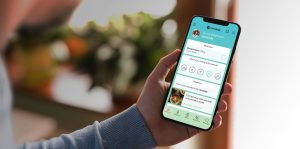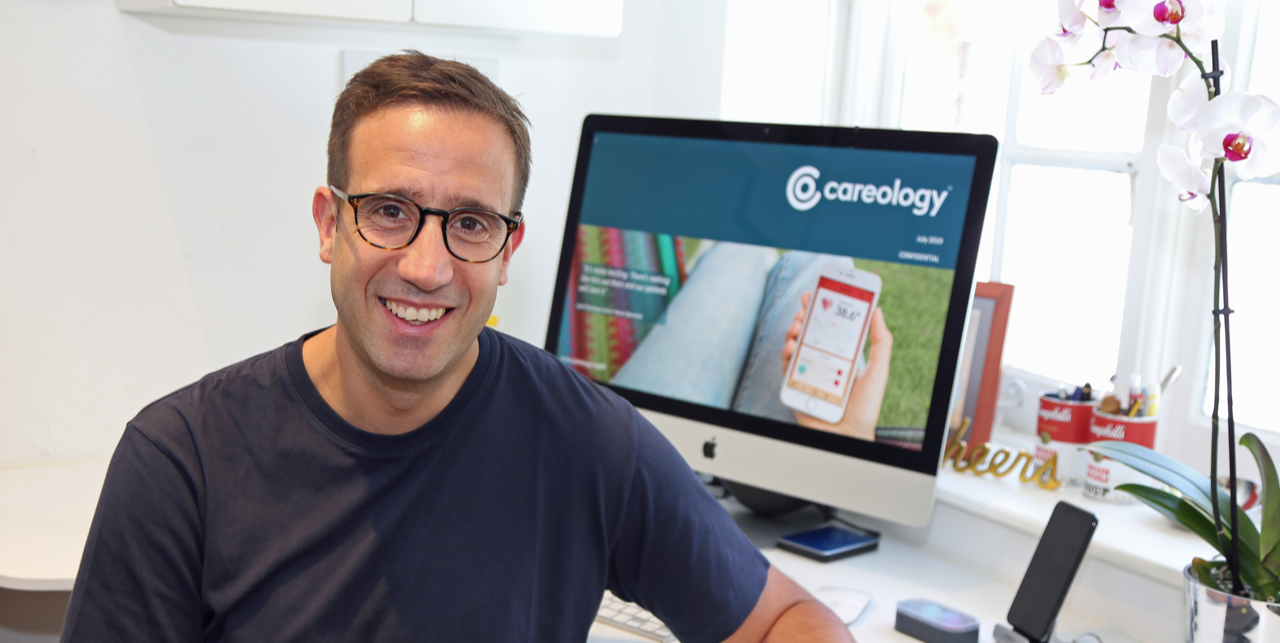We caught up with Paul Landau, CEO and founder of Careology, to talk all things from the importance of real-time health tracking to growing the company through COVID-19…
Tell us about Careology
Careology is a digital cancer care platform that helps people living and dealing with cancer to navigate their journey, using wearable technology to connect them with their clinicians, caregivers and family. The mobile app is available on iOS and Android.
Patients can track their health and journal their thoughts, mood and feelings, as well as track medication adherence and appointments. This data – and more – can be accessed by their clinicians and shared with chosen friends and family.
At present, clinicians rely on patients flagging problematic symptoms. But many may dismiss these side effects and symptoms as something minor or even feel like they’re being a nuisance. With Careology and the connected health tracking devices, clinicians can spot side effects and the cumulative effects of treatment remotely in real-time, increasing the chances of early intervention and providing more personalised care. They can see in real-time, key health information such as vital signs, systemic anti-cancer therapy (SACT) toxicities, medication adherence, and more.
Research suggests the COVID-19 pandemic could result in an additional 35,000 cancer-related deaths in the UK over the next year. Careology hopes to improve patient outcomes by helping those living with cancer to feel more in control of their treatment whilst providing clinicians with data that has the potential to be life-saving.

How did you come up with the idea for the company?
Back in 2015, my wife Lucy was diagnosed with Hodgkin’s Lymphoma, she was also pregnant with our second child. Within the space of 10 days, Lucy had been diagnosed, given birth, had a PET scan and was starting treatment. I saw first hand the different aspects my wife had to juggle in this already daunting time.
Having had 15 years of health-tech experience, including founding and leading wearable technology company Fitbug, I decided to create a consumerized solution to better support people living with such a complex diagnosis. Careology empowers people to feel far more in control during and beyond their treatment, whilst connecting them and enabling them to share their real-time status with caregivers and clinicians to enable proactive care.
More from Interviews
- Meet Jordan McMullen, COO of Ctrl Alt.
- Meet Bartosz Skwarczek, Founder of G2A Capital Group and G2A
- Paul Pester On Tandem And The New Wave Of Online-Only ‘Challenger Banks’
- A Chat With Henry Dewing, CEO at SaaS Business: DueTrade
- Meet Glenn Smith, Co-Founder at AI Nutrition App: Fueld
- Navigating the DeepTech Maze
- Rashid Amanzholov: IOS vs. Android – Key Differences And Development Strategies For 2024
- Meet Manon Heuveneers, Full Stack Engineer at Energy Storage Company: Allye Energy
How has the company fared during COVID-19?
As a tight-knit, early-stage company we were able to quickly adapt to working from home and have continued to make significant strides in our product development. We released two key products during this time; Careology Professional, our innovative and sophisticated web-based dashboard for healthcare professionals and Careology Connect, our mobile app to help people track COVID-19 symptoms. We have also seen notable growth in the number of downloads of our Careology mobile app as more people are looking for ways for technology to help them self-manage.
What can we hope to see from Careology in the future?
Coronavirus has created a paradigm shift for healthcare. The lessons learnt and the technological advancements that have been made will become embedded for years to come. At Careology we are passionate about playing our part and developing a platform that delivers safe, scalable and efficient remote patient monitoring.
We are proud to have Macmillan Cancer Support feature Careology on a shortlist of recommended services and we are working to support people living with cancer, as well as the healthcare professionals delivering this care. Our ambition is to see medical professionals across the NHS and private sector embed digital cancer care in their patient pathways and use the rich, real-time health information from Careology Professional to improve health outcomes for their patients. In order to do this, we have created an NHS division, headed by Dr Henry Carleton who has worked across the NHS for 25 years, both as a clinician and also having established two highly successful health tech businesses, serving large sectors of the NHS.



